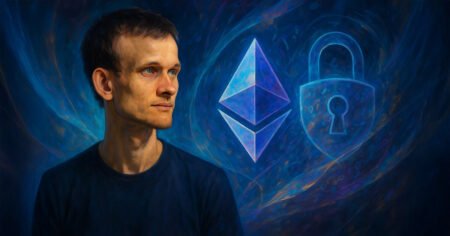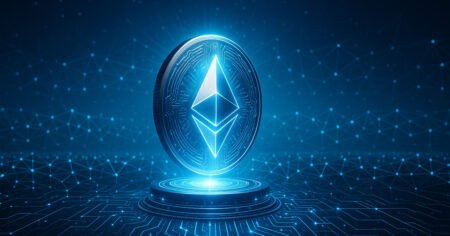Real-Time Zero-Knowledge Proving Revolutionizes Ethereum: A Deep Dive
Succinct has achieved a significant milestone in the realm of zero-knowledge proofs, demonstrating the capacity to generate cryptographic proofs for Ethereum blocks in real-time. The company’s innovative SP1 “Hypercube” zkVM managed to produce a proof for Ethereum block 22309250, comprising 143 transactions and utilizing 32 million gas, in an impressive 10.8 seconds. This marks a transformative moment not just for Ethereum but for the broader zero-knowledge proving landscape, showcasing how advanced cryptographic techniques can dramatically enhance blockchain performance.
Key Technological Innovations
At the heart of Succinct’s achievement lies an entirely new proof system based on multilinear polynomials, paired with optimized CUDA kernels for computational efficiency. Operations such as LogUp GKR and sum-check benefit from these advancements, enabling internal benchmarks that reveal an optimistic capability to prove 93% of 10,000 recent main-net blocks in under 12 seconds. With an overall average latency of 10.3 seconds, Succinct has effectively narrowed the latency gap that has historically been a barrier in the proving process. This engineering milestone underscores significant advancements in cryptography, hardware acceleration, and distributed systems, paving the way for broader adoption and scalability of zero-knowledge proofs in blockchain.
The “Moonshot” Moment in Zero-Knowledge Proving
Co-founder Uma Roy characterized this achievement as a “man on the moon moment” for zero-knowledge technology, highlighting the rapid progress within the space over the past year. Just a short time ago, many experts would have dismissed real-time Ethereum proving as a far-fetched goal. To have now crossed this threshold is a testament to the relentless innovation driven by the Succinct team, establishing a robust foundation for real-time proof generation that enhances Ethereum’s scalability and efficiency.
Remaining Challenges and Limitations
Despite the remarkable advancements, Ethereum co-founder Vitalik Buterin highlighted important challenges that still need addressing. Presently, the results reflect only average-case performance, with the worst-case scenarios not yet matching the required block times for essential Layer 1 security. Furthermore, while SP1 proofs have demonstrated impressive speed, they haven’t undergone formal verification. The energy consumption of nearly 100 kW per proof remains a concern, especially when compared to Buterin’s ideal threshold of 10 kW for feasible home-based proving solutions. Expanding Ethereum’s Layer 1 gas limits further relies on improving proof efficiency to maintain this balance.
Decentralization and Proving Capacity Considerations
Community discussions surrounding decentralization and proving capacity have gained traction, particularly in forums like Ethereum Magicians. Researcher Dankrad Odendaal has advocated for a temporary relaxation of hardware decentralization goals. He argues that not only has proving overhead significantly decreased, but that additional architectural improvements could yield further efficiency gains. His insights suggest that proving can be reversible, in contrast to other scaling areas that come with permanent burdens, offering flexibility should scalability challenges arise.
A Path Forward: Innovations and Collaborations
The rollout of SP1 in real-time contexts highlights the importance of both cryptographic innovation and infrastructure coordination. Succinct’s deployment strategy incorporates bare-metal setups and performance-optimized distributed workloads. Yet, the current constraints in formal verification and energy efficiency signify that the proving landscape continues to evolve, rather than reaching a definitive conclusion. Continued efforts to reduce latency and energy requirements will be pivotal for Ethereum’s ability to guarantee trust-minimized execution directly within its foundational layers.
Conclusion: A New Era for Blockchain Technology
The success of Succinct’s real-time zero-knowledge proving represents a critical leap for Ethereum and blockchain technology at large. As the complexities of decentralized systems continue to grow, advancements like those seen with the Hypercube zkVM will be essential in addressing scalability challenges. The implications of real-time proving could redefine the future of Ethereum and similar platforms, laying the groundwork for more efficient, secure, and scalable blockchain ecosystems. By tackling technical limitations and fostering community discussions, the road ahead looks promising, and the zero-knowledge proving space appears poised for further groundbreaking innovations.

















